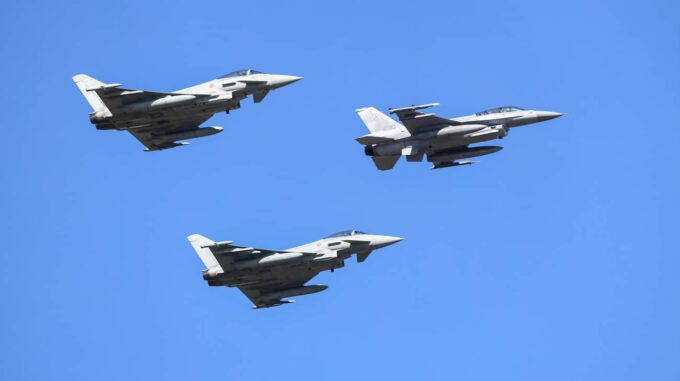British fighters intercepted a Russian reconnaissance aircraft over the Baltic Sea as part of heightened response to Moscow’s provocative actions

In the early hours of Friday, June 13, the situation in the Baltic Sea region once again heightened due to another incident involving a Russian reconnaissance aircraft violating airspace. According to information received from the Polish Armed Forces Operational Command, the British Armed Forces urgently scrambled their fighter jets and intercepted a Russian Ilyushin Il-20 reconnaissance plane, which, by all indications, crossed international air borders in an attempt to conceal its operation in the border zone. According to the Polish side, the incident occurred around 10:50 a.m. The Russian aircraft, likely conducting reconnaissance missions, entered the responsibility zone of Polish and allied forces, crossing the airspace boundary over the Baltic Sea area. This prompted an immediate response from British military units stationed in Warsaw, who for a short time scrambled their fighter jets for identification and interception of the hostile target. Representatives of the Polish command noted that this incident is yet another confirmation that Russia continues to employ provocative tactics with the clear intent of testing NATO countries’ operational readiness on the Alliance’s eastern flank. The report states that Polish military authorities immediately informed NATO command, which maintains a continuous rotation and monitoring of the situation in the region, for further appropriate actions. It is worth noting that this case is part of a series of events indicating growing tensions in the Baltic region and increasing military incidents involving Russia. Just last week, the Finnish armed forces also reported violations of their airspace by Russian aircraft, further fueling concerns among experts about escalation of the conflict. Additionally, several other interception cases of Russian reconnaissance aircraft by British fighters, currently on high alert at military bases in Poland, have been recorded over a short period. This indicates a systematic nature of such operations and the ability of Alliance countries to respond swiftly to any provocations from Moscow and its strategic intelligence units. Analysts point out that last week’s events, including missile defense and interceptions of Russian aircraft near the borders of the USA, Germany, and Baltic states, demonstrate escalating tension and Kremlin efforts to showcase strength and capabilities in the region. At the same time, NATO representatives reaffirm their readiness to respond appropriately and ensure the security of Alliance member countries by strengthening collective defense and upholding international order. Thus, the situation in the Baltic Sea remains tense, with regular interceptions and incidents involving Russia becoming increasingly common. This raises concern among military experts and policymakers, as escalation of the conflict could have far-reaching consequences not only for regional security but also for global stability. Close monitoring of the situation and decisive actions by the international community to protect common interests and maintain peace in Europe are necessary.

